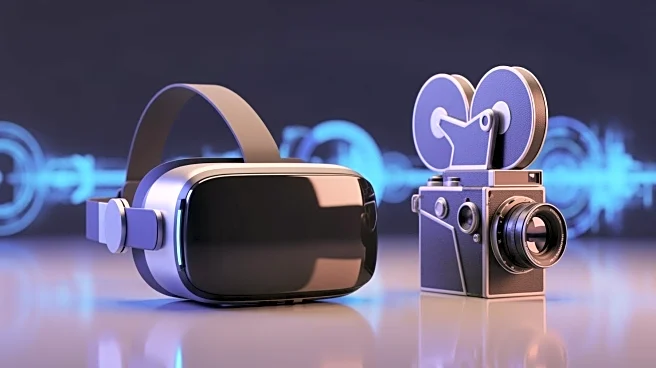What's Happening?
In a recent interview, renowned game creator Hideo Kojima expressed his views on the future of the gaming industry, emphasizing the potential role of artificial intelligence (AI) in game development. Kojima warned
against the creative risks of relying heavily on remaking old franchises and suggested that AI could be used to handle repetitive tasks, allowing human creators to focus on imaginative work. He described AI as a 'friend' in development, enhancing efficiency without replacing human creativity. However, Motoi Okamoto, producer of the Silent Hill series, disagreed with Kojima's perspective. Okamoto argued that AI lacks the ability to make bold creative decisions, such as those involved in the development of Silent Hill f, which features a unique setting in 1960s Japan and collaboration with horror writer Ryukishi07. Silent Hill f has sold over 1 million copies since its release in late September, receiving positive reviews for its personal horror story set in historical Japan.
Why It's Important?
The debate over AI's role in gaming highlights a broader discussion about technology's impact on creative industries. Kojima's advocacy for AI as a tool to improve efficiency and support developers reflects a growing trend in the industry to integrate advanced technologies. This could lead to faster production times and reduced costs, benefiting developers and potentially transforming game development processes. However, Okamoto's concerns underscore the limitations of AI in replicating human insight and vision, which are crucial for making innovative creative decisions. The differing views on AI's role in gaming could influence future development strategies and the balance between technological integration and human creativity.
What's Next?
As AI technology continues to advance, the gaming industry may see increased experimentation with AI tools, potentially leading to new development methodologies. Developers like Kojima and Glen Schofield, creator of Dead Space, advocate for AI's use in improving speed and reducing costs, suggesting a shift towards more AI-assisted processes. However, concerns about AI's limitations in creativity may prompt ongoing discussions about its appropriate role in game development. Companies may need to address copyright issues related to AI-generated content, as seen with fan-created parody content using generative AI tools. The industry will likely continue to explore the balance between AI integration and maintaining human-driven creative processes.
Beyond the Headlines
The integration of AI in gaming raises ethical and cultural questions about the future of creativity and authorship. As AI tools become more prevalent, developers and companies may need to navigate issues related to intellectual property and the authenticity of creative works. The debate also touches on broader societal concerns about technology's role in shaping cultural narratives and the potential for AI to influence artistic expression. Long-term, the gaming industry may need to consider how AI impacts the diversity of creative voices and the preservation of human-driven storytelling.









